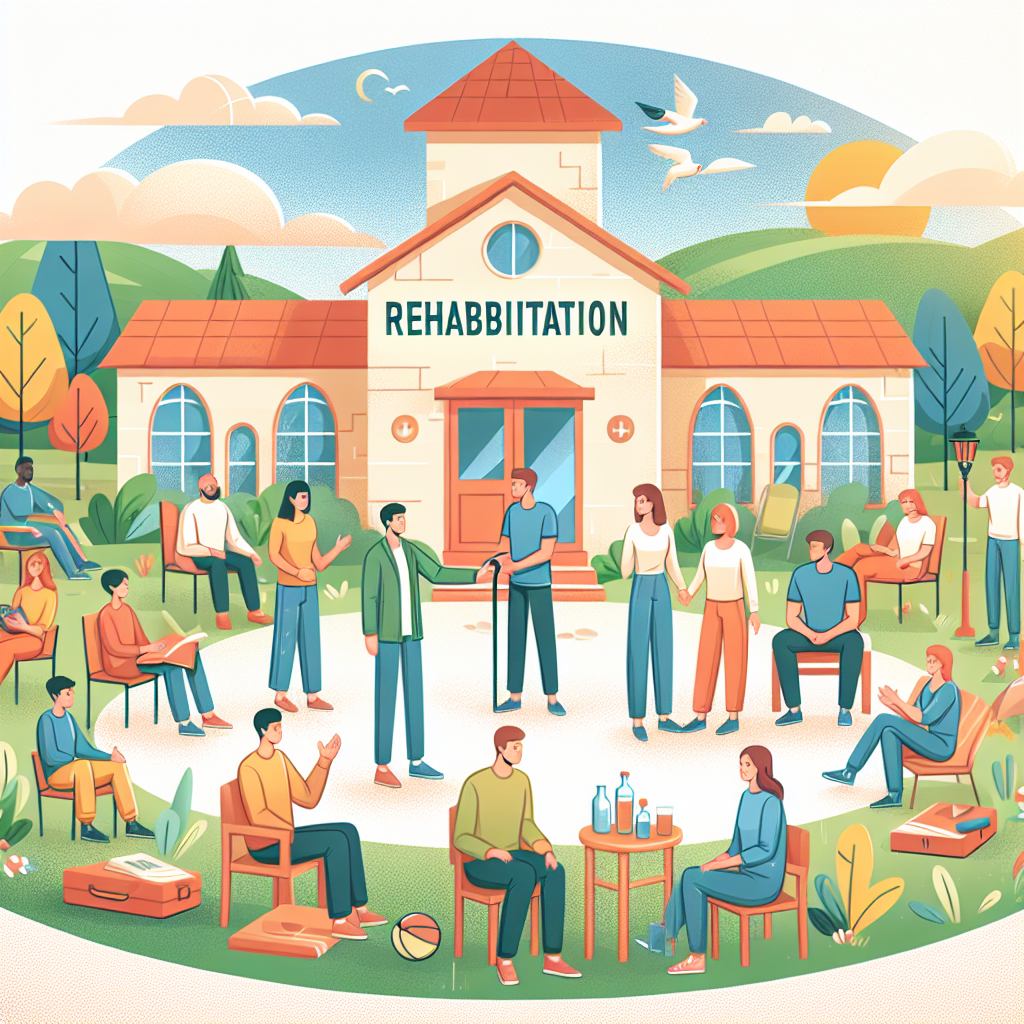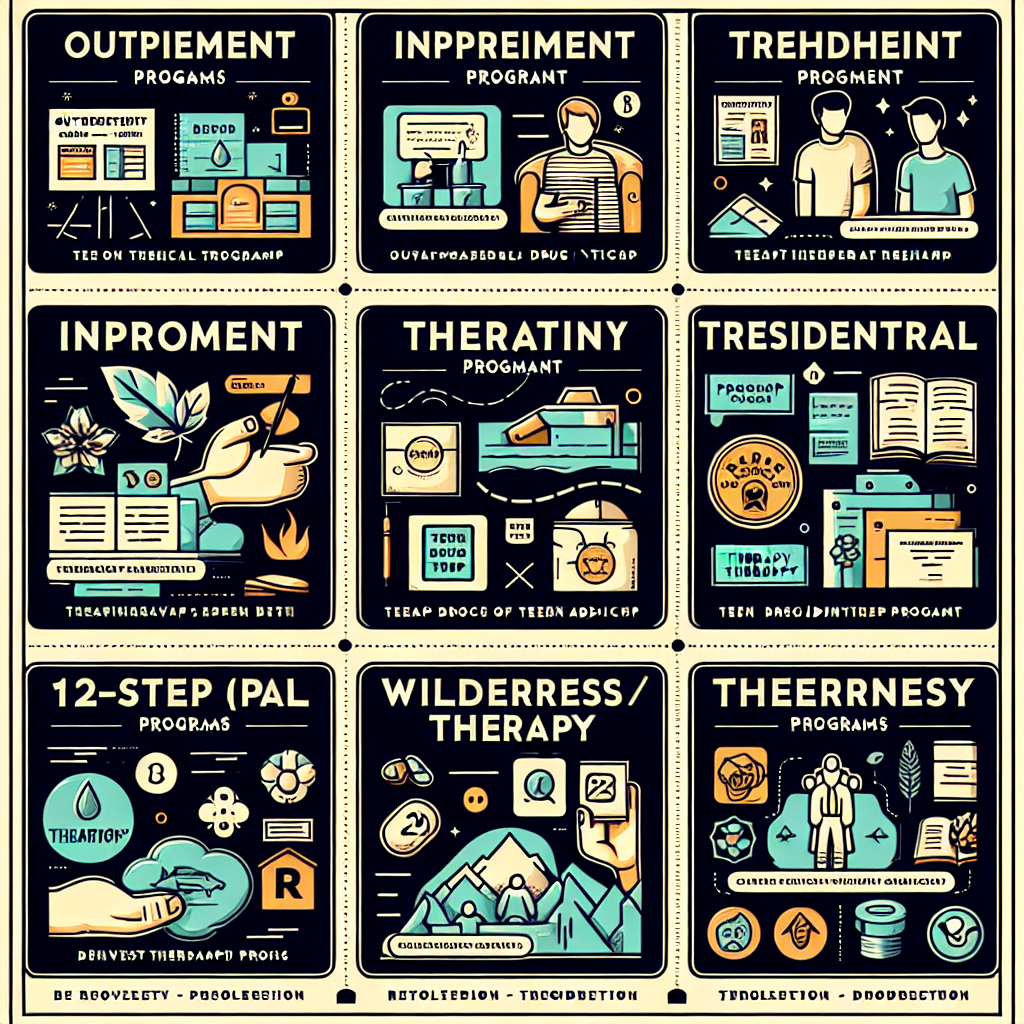-
Table of Contents

“Empowering Young Lives: Overcoming Alcoholism Through Compassionate Rehab”
Introduction
Alcoholism is a pervasive issue that affects individuals across all age groups, but young adults are particularly vulnerable due to various social, psychological, and developmental factors. Rehabilitation programs tailored for young adults offer a structured and supportive environment where they can address the root causes of their addiction, develop coping mechanisms, and build a foundation for long-term sobriety. These programs often incorporate a combination of medical treatment, counseling, peer support, and life skills training to help young adults navigate the challenges of recovery. By providing a comprehensive approach that addresses both the physical and emotional aspects of addiction, rehab can play a crucial role in helping young adults overcome alcoholism and lead healthier, more fulfilling lives.
The Role Of Rehabilitation Programs In Helping Young Adults Overcome Alcoholism
Rehabilitation programs play a crucial role in helping young adults overcome alcoholism, offering a structured and supportive environment that fosters recovery and personal growth. For many young adults, the journey to sobriety can be fraught with challenges, but rehab provides the tools and resources necessary to navigate these obstacles successfully. By addressing the physical, emotional, and psychological aspects of addiction, rehabilitation programs create a comprehensive approach to recovery that can be life-changing.
One of the primary benefits of rehab for young adults is the opportunity to detox in a safe and supervised setting. Detoxification is often the first step in the recovery process, and it can be particularly daunting due to the withdrawal symptoms associated with alcohol dependence. In a rehab facility, medical professionals are on hand to monitor and manage these symptoms, ensuring that the detox process is as comfortable and safe as possible. This medical support is crucial in preventing complications and providing a solid foundation for the subsequent stages of recovery.
Beyond the initial detox phase, rehabilitation programs offer a variety of therapeutic interventions designed to address the underlying causes of alcoholism. For young adults, these causes can be complex and multifaceted, often involving factors such as peer pressure, stress, mental health issues, and family dynamics. Through individual counseling, group therapy, and other therapeutic modalities, rehab helps young adults explore these issues in depth, gaining insight into their addiction and developing healthier coping mechanisms. This therapeutic work is essential in breaking the cycle of addiction and laying the groundwork for long-term sobriety.
In addition to therapy, rehab programs often incorporate educational components that teach young adults about the nature of addiction and the importance of maintaining a sober lifestyle. These educational sessions can cover a wide range of topics, from the effects of alcohol on the brain and body to strategies for avoiding relapse. By equipping young adults with this knowledge, rehab empowers them to make informed decisions about their health and well-being, fostering a sense of agency and responsibility that is vital for sustained recovery.
Another key aspect of rehabilitation programs is the sense of community and support they provide. For many young adults, the isolation and stigma associated with alcoholism can be overwhelming, making it difficult to seek help or connect with others who understand their struggles. In rehab, young adults have the opportunity to build relationships with peers who are going through similar experiences, creating a network of support that can be invaluable during and after treatment. This sense of camaraderie and mutual encouragement can help young adults feel less alone in their journey and more motivated to stay committed to their recovery goals.
Moreover, rehab programs often emphasize the importance of aftercare and ongoing support, recognizing that recovery is a lifelong process. After completing a rehab program, young adults are typically encouraged to participate in support groups, continue therapy, and engage in activities that promote a healthy and sober lifestyle. This ongoing support helps to reinforce the skills and insights gained during rehab, providing a safety net that can prevent relapse and promote continued growth.
In conclusion, rehabilitation programs offer a comprehensive and supportive approach to helping young adults overcome alcoholism. By addressing the physical, emotional, and psychological aspects of addiction, providing education and resources, fostering a sense of community, and emphasizing the importance of aftercare, rehab creates a pathway to recovery that is both effective and inspiring. For young adults struggling with alcoholism, rehab can be a transformative experience that opens the door to a healthier, more fulfilling life.
Success Stories: How Rehab Transformed The Lives Of Young Adults Battling Alcoholism
Rehabilitation centers have long been a beacon of hope for individuals grappling with the challenges of alcoholism. For young adults, the journey to sobriety can be particularly daunting, given the unique pressures and social dynamics they face. However, countless success stories illustrate how rehab can transform lives, offering a path to recovery and a brighter future.
One such story is that of Emily, a 24-year-old who found herself ensnared by the grip of alcohol during her college years. Initially, drinking was a social activity, a way to fit in and alleviate the stress of academic life. However, it quickly spiraled into a dependency that affected her studies, relationships, and overall well-being. Recognizing the need for change, Emily sought help at a rehabilitation center. Through a combination of therapy, support groups, and educational workshops, she learned to understand the root causes of her addiction and develop healthier coping mechanisms. Today, Emily is not only sober but also an advocate for mental health, using her experience to inspire others.
Similarly, Jake’s story underscores the transformative power of rehab. At 22, Jake’s life was in disarray due to his excessive drinking. His relationships with family and friends were strained, and his career prospects were dwindling. Entering rehab was a pivotal decision. The structured environment provided him with the stability he needed to confront his addiction. Through individual counseling and group therapy, Jake gained insights into his behavior and learned strategies to maintain sobriety. Now, he has rebuilt his relationships and is pursuing a career in counseling, eager to help others navigate their own recovery journeys.
Transitioning to another inspiring narrative, we meet Sarah, who began drinking heavily in her late teens. The loss of a close family member had left her emotionally shattered, and alcohol became her escape. By the time she was 21, Sarah’s life was dominated by her addiction. Her turning point came when she realized the toll it was taking on her health and future aspirations. Rehab offered her a lifeline. The holistic approach of the center, which included physical fitness, nutritional guidance, and emotional support, helped Sarah regain control of her life. Today, she is a thriving entrepreneur, attributing her success to the resilience and discipline she cultivated during her time in rehab.
These stories highlight the multifaceted benefits of rehabilitation for young adults battling alcoholism. Rehab centers provide a safe and supportive environment where individuals can confront their addiction without judgment. The combination of medical care, psychological support, and peer encouragement creates a comprehensive treatment plan tailored to each person’s needs. Moreover, the skills and strategies learned in rehab extend beyond sobriety, equipping individuals with tools to handle life’s challenges more effectively.
Furthermore, the sense of community within rehab centers cannot be overstated. Young adults often find solace in connecting with peers who share similar struggles. This camaraderie fosters a sense of belonging and mutual support, which is crucial for long-term recovery. The friendships formed in rehab can become a vital support network, offering encouragement and accountability long after the program ends.
In conclusion, the success stories of young adults like Emily, Jake, and Sarah serve as powerful reminders of the transformative impact of rehab. These narratives not only inspire hope but also underscore the importance of seeking help and embracing the journey to recovery. Through dedication, support, and the right resources, young adults can overcome alcoholism and build fulfilling, sober lives.
Q&A
1. **Question:** How does rehab provide a structured environment for young adults overcoming alcoholism?
**Answer:** Rehab provides a structured environment by offering a daily schedule of therapy sessions, group activities, and educational workshops, which helps young adults develop healthy routines and reduces the likelihood of relapse.
2. **Question:** What role does peer support play in rehab for young adults dealing with alcoholism?
**Answer:** Peer support in rehab allows young adults to connect with others who are experiencing similar struggles, fostering a sense of community and mutual encouragement, which can be crucial for emotional support and long-term recovery.
Conclusion
Rehabilitation programs can significantly aid young adults in overcoming alcoholism by providing structured environments, professional medical and psychological support, and peer encouragement. These programs offer comprehensive treatment plans that address the physical, emotional, and social aspects of addiction. Through detoxification, therapy, education, and aftercare planning, rehab helps individuals develop coping strategies, rebuild their lives, and maintain long-term sobriety. The supportive community and tailored interventions in rehab settings empower young adults to break free from the cycle of addiction and achieve lasting recovery.



